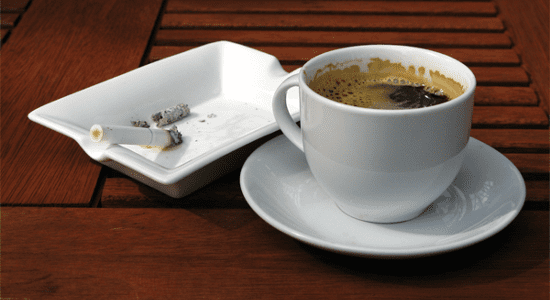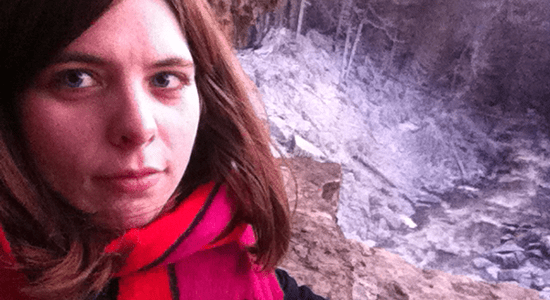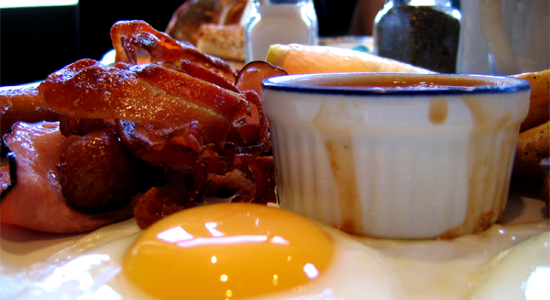The sun never sets in this city. Light clings to the horizon like a jealous King gripping his crown as he banishes every illegal glimmer, each gratuitous glow. It is a sky radiance raped and bright abandoned; dark, empty, no longer alight. Here, stars are fallen knights imprisoned by street lamps and concrete walls cocooned in expired posters and stale graffiti. There are no sparkling sapphire nights, no constellations to connect the images of childhood dreams birthed on Islands; only a dull orange haze hanging low in the distance and a lot of people who never look up because there’s nothing to see. It is a place where new faces, like mine, go as unnoticed as a misplaced moon.
Shorthand
Revolution
Her love lies listless in the bosom of a bedroom Between dust and dirtied sheets Emptied drawers and lonely, closeted spaces Unwashed windows and the widow woman’s tears Water she now knows the taste of Behind wandering walls, beneath unfamiliar floors Her desire slips silently unseen Around toes, over hands, through words Balancing uneasy on the tip of anxious lips To be swallowed whole and undigested In the middle of the night, it moves Voiceless amongst forgotten names and unwanted numbers Creeping – Creaking under the weight of foreign feet As it is carried across candlelit cityscapes, Scraping concrete against open mouths Clothes slip too easily from her borrowed body His absent sweat stinging memories As her rhythm clings to the sound of moans Hidden in graves dug belly-deep She sleeps to dream its freedom.
The Café
A woman sits in a chic cafe somewhere in western Europe. A waiter walks up to the table and places an espresso in front of her.
Madame: Excuse me.
Waiter: Yes, madame?
Madame: Could you please ask that man over there to stop living?
Waiter: Certainly, madame.
Madame: Grazie.
Waiter: I’m sorry madame, but the man refuses your request.
Madame: Oh, how drôle.
Waiter: Quite drôle, madame.
Madame: Well, if that man refuses my request, then may I ask of you another request?
Waiter: Of course, madame.
Madame: Take this pistol and make it so that that man stops living.
Waiter: Of course, madame.
Madame: Merci.
Waiter: Madame?
Madame: Yes?
Waiter: I followed your request, but so it seems . . . that man is not alive.
Madame: Oh?
Waiter: Yes. In all truth, death is sitting at that table.
Madame: Oh? Well then, send him my regards.
Waiter: Madame?
Madame: Yes?
Waiter: He wishes for you to join him.
END
Emerging Author of the Month: Sarah Feldbloom
Tell us about yourself.
I love making things, and exploring. I lived in Malawi for six months last year where I worked at a radio station and a newspaper conglomerate—the women’s section of the weekend features paper. I write poems, prose, songs, and journalistic stories. I also facilitate community media and writing groups. I’ve written for OpenFile.ca, Carousel, Herizons, and the Toronto Star’s “Africa Without Maps” blog. I also produce podcasts, currently for Shameless Magazine’s site, as their web producer. I love reading BOOKS, and the place that I get them from almost exclusively is the library, where I go usually about twice a week. I have travelled to over 20 countries on 5ish continents. This winter I’ve been wearing a lot of sweater vests and baking up a storm of alternative desserts!
Tell us about the piece you’ve decided to share.
My mother grew up in the Maritimes, and I spent most of my summers as a child and teen in New Brunswick, Nova Scotia and P.E.I. When I was 23, and long out of the habit of migrating east, I started to feel this intense draw back. Something inside of me yelled “Newfoundland! Newfoundland! St. John’s!”—where I’d never been. The feeling was more than magnetic. It tugged me there that summer—which was the happiest time of my life, and then pulled me back after I graduated from university in Toronto, by way of a French program in Trois Pistoles, Quebec. I travelled through the Northern part of the Maritimes in a car with someone I’d never spoken English to, and got onto a plane from Halifax, to finally arrive in the St. John’s airport, where the boy I’d fallen in love with the year before was waiting for me. He drove me to his shared house—a place where there was spray paint all over the walls, and the backdoor was literally never locked. I stayed for a few weeks until we decided to formalize the arrangement, then things got stirred up and we moved somewhere new together.
Our house was owned by a wonderful woman I had befriended at an event put on by the very small St. John’s Jewish community. She’s American and at the time, needed to return to the States for a few months. So she invited me to be the one responsible for turning on her taps and heaters every so often and to make sure her home didn’t fall into ruins over the winter. My partner and I lived there mostly happily, until I decided to return to Toronto, where I missed my world, which is filled with so many people and opportunities that drive me creatively that I just couldn’t make peace with settling so far away from it. He and I are not together anymore, and I’m glad for that now. My poem House-sitting/In Joy Hecht’s Bed is about the texture of our shared life, which felt so special.
For most of the time I lived in St. John’s I was 25. I think that a big slice of what brought me there is that I’d grown up in urban Toronto and needed to know a part of myself that felt unexplored—to learn what it is like to belong to a small community and live in a place with clean air and forests you could walk into from town, in addition to having so many spots to be private with the ocean. I’ve also included a poem about the other Saint John—located in New Brunswick, where my mother grew up. It’s about family and saying goodbye.
When and why did you realize you had a passion for writing?
I’ve always been writing, all my life, every day. Before I knew the alphabet I had my mother staple together sheets of loose leaf paper, called it a notebook, and brought it around with me all the time scribbling fake letters on every line of every page. I filled up ‘Math,’ ‘French,’ ‘Social Studies,’ and ‘Science.’ The reason: to figure things out, to tell myself jokes, to keep myself company. I always found that I was able to connect to people through stories. I’m working on doing that better and better, because nothing feels as good as relating with someone genuinely, and the first step is engaging your own heart and imagination.
What piece(s) of writing/author(s) have had the greatest impact on you?
David Bezmozgis, a past Diaspora Dialogues mentor who grew up in the same neighbourhood as I did—Bathurst and Russia (or the area around Steeles and Finch for those of you who are looking for it on a Toronto map). When I read his stories in the collection Natasha, I felt so close to the world that I started out in, it shook me. Kurt Vonnegut makes me feel like myself, Douglas Coupland makes me feel so proud to be Canadian. Dave Eggers writes in a way that seems more honest than almost anyone else. Jeanette Winterson reminds me that life is as real as my imagination, and people can live in houses with no floors, and be in the future, past and present all at the same time.
There are lots of young Torontonian writers who inspire me, but I’ve already mentioned a whole bunch of them in a post I wrote for DD’s blog. Two of my favourite authors from Newfoundland are Craig Francis Power, who published his first novel Blood Relatives last year, and Sara Tilley, who wrote Skin Room. Both of these books exhibit St. John’s vibrant youth and cultural communities. They are incredible novels, definitely give them a read. Stories in the collection Open by another St. John’s author, Lisa Moore, express something intangible about feminism that I feel very close to.
What kind of writer do you aspire to be?
I like to tell stories that are whimsical, crude, kind, bloody, sexual, ferocious, authentic, and multi-media. I try to put an emphasis on accessibility, humour and artfulness. I aim to address social justice issues by speaking about the way they manifest in my everyday life.
How and when do you find time to write?
It used to be that I’d write every night in my journal when I was a kid, now I do that every morning when I wake up. For a long time, I’d write in motion almost exclusively—on city transit, buses, planes and trains, even on the treadmill. During many phases of my adult life, I’ve had the habit of waking up in the dark and writing for a few hours before my “real” day starts and everything begins moving around me and distracting me from the beautiful things. I get to concentrate when everyone else is asleep and I can imagine I am in a dream library.
House-Sitting/In Joy’s Bed
Months ago we woke snorting up brown and lime green snot We held hands and laughed about it lay beside each other in bed Took turns soaking the sheets with contagious sweat At the bleating horn of the other’s alarm on mornings he or I could have slept in Instead, grabbing at the other before the day tore away to laces undone fumbling down Livingstone Street’s steps Cold feet scalded sweetly on hot water bottles sainted long johns undershorts worn three days in a row piles of clean and dirty laundry on the floor The first night unpacked we lay on the bed looked out the window to ocean cranes The mattress didn’t spring it absorbed our shapes When he and I were in it it was hard to roll around so we pressed legs to legs licked each other like ice cream cones lost hairs in the sheets held on while we drifted off
Funeral Day in Saint John
Weeping by a fake porthole in the Hilton’s breakfast restaurant I eat seconds of bacon, and thirds My grandfather wouldn’t have minded my breaking kashrut He would have whispered “I won’t tell if you don’t tell about the cheeseburger yesterday,” and chuckled sweetly My mother is at her mother's place not listening to the sound of the phone ring— sealing saran-wrap around a sponge cake, our Friday night leftovers soggy, teetering in the pan The ocean solution looks like all of us— in bits, floating wisps of white pollution What’s wrong doesn’t drown us We are doing dead man’s float except for grandpa My sister arrives with the breakfast vouchers I get whatever I want before I figure it won’t be out of pocket I would pay for anything today even though I’ve been on boiled beans and rice for weeks had no choices to make about money Her and cousin Jer come back from the buffet with full plates laughing about something Jeremy gets on the phone calling our younger cousins to join us We all eat as much as we can





